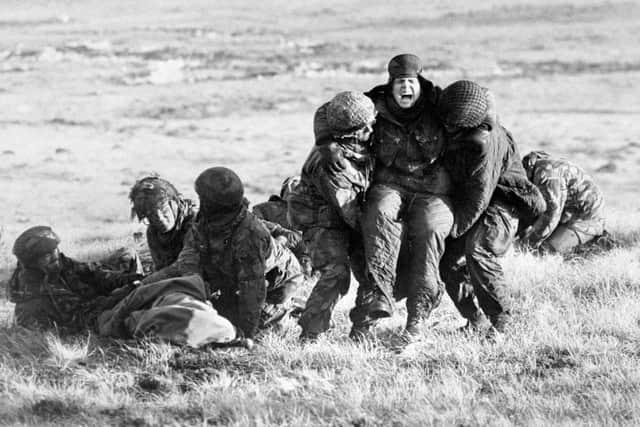Most people ‘clueless’ about Falklands War
and live on Freeview channel 276
One in four younger people have never heard of the fierce battle with Argentina over the islands, a survey indicated.
Only 4% of more than 2,100 adults polled by Help for Heroes to mark the 40th anniversary of the war were able to answer questions correctly.
Advertisement
Hide AdAdvertisement
Hide AdHalf of those aged 18-34 said they did not know when the war was fought, and one in 10 of that age group believed the UK invaded the islands, leading to the war, while a similar number thought the Falklands are in the English Channel.


The charity said its research suggested that the sacrifice of those who stepped up to serve their country is in danger of being forgotten as years pass.
Help for Heroes said it believed there are likely to be many Falklands veterans who are still struggling with physical or mental wounds from the conflict, and wants these people, and their families, to know they will never be forgotten, and it is never too late to come forward for support, even 40 years on.
Carol Betteridge, head of clinical and medical services at Help for Heroes, said: “Forty years ago, the support for mental and physical wounds was less advanced and harder to access, making it difficult for veterans to get the support they needed.
Advertisement
Hide AdAdvertisement
Hide Ad“While there have been major improvements in government support for veterans since then, we are concerned that veterans are falling through the gaps.
“Just because people were injured 40 years ago, doesn’t mean they don’t still need help, as recovery can take years or last a lifetime.
“We’re currently supporting Falklands veterans with long-term issues, including the lasting effects of trench foot and also PTSD. Every one of them deserves our help and we would urge anyone who is struggling to ask for help.”
Falklands veteran Nick Martin, 65, was in the Royal Navy on the Atlantic Conveyor when, on May 25 1982, it was hit by two Argentine Exocet missiles, killing 12 crew.
Advertisement
Hide AdAdvertisement
Hide AdHe suffered physical injuries including a fractured skull, traumatic brain injury, lost teeth, a dislocated jaw and burns to his mouth and throat.
Nick, originally from Hertfordshire but now living in Plymouth, also has a diagnosis for PTSD (post traumatic stress disorder) as a result of his time in the Falklands.
He said: “There was no real support available for me when we returned home. I had a couple of months in Stonehouse Hospital in Plymouth, but nothing more than physiotherapy. There was no mental health support at all. No advice.”